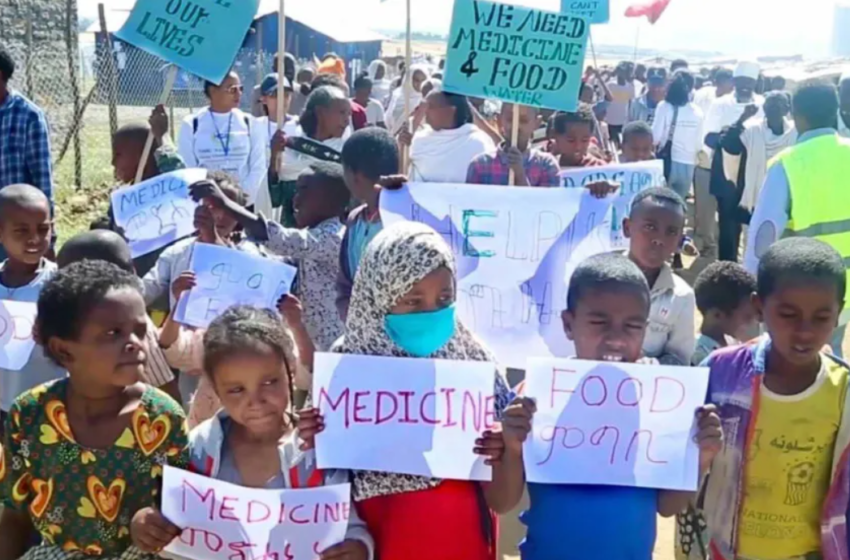
De Facto Blockade for More than a Year Deprived 7 Million People in Tigray of Urgently Needed Aid: UN Health Body
Source: Globe News Net
March 11, 2022
The head of the World Health Organization (WHO) said Thursday that 7 million people in Ethiopia’s northern Tigray region need urgent help.
“For more than a year, a de facto blockade has deprived 7 million people in Tigray of urgently needed health care, and access to food. People are dying,” WHO Director-General Tedros Ghebreyesus said on Twitter.
Calling on Ethiopia and Eritrea to guarantee immediate and safe access, he said: “Life is precious – everywhere.”
A report released by the World Food Programme warns that an estimated 13 million people across Ethiopia, Kenya, and Somalia are facing severe hunger due to the driest conditions recorded since 1981.
The World Health Organization last month called for “unfettered access” into war-wracked Tigray, saying its first delivery of life-saving medical supplies since July last year had stalled due to lack of fuel.
Nearly 40 percent of people in Tigray, a region of six million people, face “an extreme lack of food”, the UN said last month. The dire assessment published by the World Food Programme (WFP) came as humanitarian groups increasingly curtail activities because of fuel and supply shortages.
The UN rights office on Monday reported that at least 304 civilians had been killed in air strikes in the north, particularly Tigray, since November. The UH Rights office also said that it has received reports of “306 rape incidents by Tigrayan forces in the Amhara region” between November 1 and Dec. 5, 2021.
A recent study by Mekelle University and the Regional Health Bureau showed that 120,000 women in a conservative Tigray came forward to report rape by either Ethiopian, Eritrean, or Amhara. Researchers say that the figure was only a tip of the iceberg, considering the sexual conservativism in Tigray into account. Tigray regional health bureau announced today that 7.3 % of the women who have been raped have been contracted with various sexually transmitted diseases (STDs) and 5 % have been infected with HIV.
The war began in November 2020 when Ethiopia’s army, backed by Eritrean and Somalia national armies and troops from Ethiopian regional states, moved to oust a TPLF-led regional government in Tigray after a long-standing political hostilities between Abiy’s ruling party and the TPLF. The other dimension of the war was a genocidal campaign that has been brewing by elites from Amhara and Eritrean government. The trio combined their forces to unleash the November 2020 ‘war-of-annihilation’ on Tigrayans.
The more than 16-month-old war was marked by extreme brutality, including the use of rape and hunger as weapons of war, massacres and ethnic cleansing against Tigrayans. As a result, the conflict has left thousands dead and forced many others to flee their homes with hundreds of thousands driven to the brink of starvation, according to the United Nations.
Since June, Tigray has been put under a total humanitarian blockade by the Ethiopian government, with only less than 10 %of the needed essential aid allowed to enter the region and no aid reached the region since December 15, 2021. This has resulted in man-made famine to more than 900,000 people in the region and more than 5400 deaths as a result.
An estimated 9.4 million people in northern Ethiopia’s Tigray, Amhara, and Afar regions are in desperate need of humanitarian assistance. Millions more are also suffering from severe food shortages, acute malnutrition is rising, disease and chronic illnesses are going untreated.
